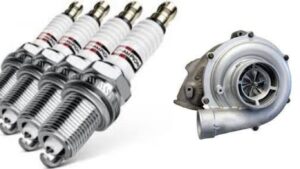In the world of car ownership, knowledge is power. And when it comes to buying or selling a vehicle, understanding the Personal Property Securities Register (PPSR) can be your secret weapon. This comprehensive guide will walk you through everything you need to know about PPSR for cars, ensuring you’re well-equipped to navigate the complex landscape of vehicle transactions.
What is PPSR?
The Personal Property Securities Register (PPSR) is a national online register managed by the Australian Securities and Investments Commission. It’s a powerful tool that records security interests in personal property, including vehicles. But why should you care about this seemingly bureaucratic system? Let’s dive in.
The PPSR’s Role in Car Transactions
When you’re eyeing that sleek used car or even a brand-new vehicle, the PPSR serves as your first line of defense against potential financial pitfalls. It’s like a crystal ball for your car purchase, revealing hidden financial interests that could turn your dream ride into a nightmare.
The PPSR is to car buyers what a home inspection is to homeowners – an essential safeguard against unforeseen issues. Auto Finance Expert
Here’s what the PPSR can tell you:
- Outstanding loans on the vehicle
- Whether the car has been reported as stolen
- If there’s a legal claim against the vehicle
- The existence of any lease agreements
PPSR vs. Other Vehicle History Reports
You might be thinking, I have heard of Carfax and AutoCheck. Aren’t they enough? While these services provide valuable information, the PPSR offers a unique and crucial perspective on a vehicle’s financial history.
| Feature | PPSR | Carfax/AutoCheck |
| Financial Encumbrances | ✓ | ✗ |
| Accident History | ✗ | ✓ |
| Stolen Vehicle Status | ✓ | ✓ |
| Maintenance Records | ✗ | ✓ |
| Legal Claims | ✓ | ✗ |
As you can see, the PPSR complements other vehicle history reports, filling in critical gaps that could save you from financial headaches down the road.
The Importance of PPSR for Car Buyers

Imagine this scenario: You’ve just found the perfect used car. The price is right, the mileage is low, and it looks stunning. You shake hands with the seller, transfer the funds, and drive off into the sunset. A month later, there’s a knock at your door. It’s a repo man, claiming the car you bought has an outstanding loan, and he’s here to take it away.
This nightmare scenario is all too real for many unsuspecting car buyers. But it’s entirely avoidable with a PPSR check.
Protecting Your Investment
When you check a car’s PPSR status, you’re essentially peeking behind the financial curtain. Here’s what you’re protecting yourself against:
- Outstanding Loans: If the previous owner hasn’t paid off their car loan, you could be on the hook.
- Lease Agreements: The car might be part of a lease agreement you know nothing about.
- Legal Claims: There could be a court order or other legal claim against the vehicle.
By uncovering these hidden financial encumbrances, you’re safeguarding your investment and ensuring that when you buy a car, it’s truly yours.
Case Study: The $20,000 Lesson
John, a 28-year-old software engineer, thought he’d scored the deal of a lifetime when he found a barely-used luxury sedan for $20,000 below market value. Excited by his find, he skipped the PPSR check and bought the car on the spot. Three months later, he discovered the car had been used as collateral for a business loan, and the lender came to repossess it. John lost both the car and his money, all for want of a simple PPSR check.
How to Check a Car’s PPSR Status
Now that you understand the importance of a PPSR check, let’s walk through the process of actually performing one.
Step-by-Step Guide for US Residents
- Gather Information: You’ll need the Vehicle Identification Number (VIN) of the car you’re interested in.
- Visit the PPSR Website: Navigate to the official PPSR portal.
- Enter the VIN: Input the car’s VIN into the search field.
- Pay the Fee: There’s a small fee for each PPSR check.
- Review the Results: Carefully read through the PPSR report.
Interpreting PPSR Results
When you receive your PPSR report, pay close attention to the following sections:
- Registration Status: Is there an active security interest registered against the vehicle?
- Grantors: Who has registered a security interest?
- Collateral Class: What type of security interest is it (e.g., car loan, lease)?
- Registration History: When was the security interest registered and by whom?
Bold Tip: Always request a PPSR clearance certificate from the seller before finalizing any car purchase.
Common PPSR Issues for Cars

When reviewing a PPSR report, there are several red flags you should be on the lookout for:
1. Outstanding Loans or Finance
If the report shows an active loan or financial agreement, it means the seller hasn’t fully paid off the vehicle. This is a major risk, as the lender could repossess the car even after you’ve bought it.
2. Stolen Vehicles
A PPSR check can reveal if a car has been reported as stolen. Buying a stolen vehicle, even unknowingly, can lead to legal troubles and the loss of your investment.
3. Written-off or Severely Damaged Cars
While not all PPSR reports include this information, some may indicate if a vehicle has been written off due to severe damage. This is crucial information that can affect the car’s value and safety.
PPSR for Car Sellers: What You Need to Know
If you’re on the selling end of a car transaction, the PPSR is equally important. Here’s why:
Clearing Existing Financial Interests
Before listing your car for sale, it’s crucial to clear any existing financial interests. This means:
- Paying off any outstanding car loans
- Terminating lease agreements
- Resolving any legal claims against the vehicle
Once you’ve cleared these hurdles, you can register your security interest on the PPSR, providing potential buyers with peace of mind.
Providing Transparency to Potential Buyers
By offering a PPSR clearance certificate to potential buyers, you’re demonstrating transparency and building trust. This can make your car more attractive to serious buyers and potentially speed up the sale process.
Legal Obligations and Best Practices
As a seller, you have a legal obligation to disclose any known issues with the vehicle. While a PPSR check doesn’t cover everything, it’s a great start. Here are some best practices:
- Obtain a PPSR clearance certificate before listing your car
- Encourage potential buyers to conduct their own PPSR check
- Be upfront about any financial interests or issues with the vehicle
The Future of PPSR in the US Automotive Market

While the PPSR is currently more widely used in countries like Australia, its principles are gaining traction in the US automotive market. Here’s what we might expect in the coming years:
Growing Awareness and Adoption
As more car buyers and sellers become aware of the risks associated with hidden financial interests, demand for PPSR-like services in the US is likely to grow.
Potential Legislative Changes
There’s a possibility that US lawmakers may introduce legislation similar to Australia’s Personal Property Securities Act, which could lead to the creation of a centralized register for vehicle financial interests.
Technological Advancements
Blockchain technology and AI could revolutionize how we track and verify vehicle ownership and financial interests, making the process even more secure and efficient.
Expert Tips for Using PPSR Effectively
To make the most of the PPSR system, keep these expert tips in mind:
- Timing is Everything: Conduct a PPSR check as close to the purchase date as possible to ensure the most up-to-date information.
- Double-Check the VIN: Always verify that the VIN on the PPSR report matches the physical VIN on the vehicle.
- Don’t Ignore Red Flags: If the PPSR report shows any issues, don’t hesitate to walk away from the deal.
- Combine with Other Checks: Use the PPSR in conjunction with other vehicle history reports for a comprehensive view.
- Keep Records: Save all PPSR reports and clearance certificates for future reference.
Conclusion
Understanding PPSR for cars is not just about ticking a box in the car-buying process—it’s about empowering yourself with knowledge that can save you from financial disaster. By making PPSR checks a standard part of your vehicle transactions, you’re not just protecting your wallet; you’re ensuring peace of mind every time you turn the key in your new ride.
Remember, in the world of car ownership, ignorance isn’t bliss—it’s potentially very expensive. So the next time you’re eyeing that perfect set of wheels, make the PPSR your first stop on the road to secure car ownership.
Frequently Asked Question
How much does a PPSR check cost?
The cost of a PPSR check can vary, but it’s typically a small fee compared to the price of a car. Always check the official PPSR website for current pricing.
Can I get a PPSR report for a car I already own?
Yes, you can conduct a PPSR check on a vehicle you already own. This can be useful if you’re planning to sell or refinance your car.
What if the PPSR shows a problem after I’ve bought the car?
If you discover an issue after purchase, consult with a legal professional immediately. You may have recourse depending on the circumstances and local laws.
Is PPSR available for all types of vehicles?
The PPSR covers a wide range of vehicles, including cars, motorcycles, and boats. Always check the specific guidelines for the type of vehicle you’re interested in.
How often should I check a car’s PPSR status?
For buyers, it’s recommended to check just before purchase. For owners, an annual check can help you stay informed about your vehicle’s status.
By following this guide and making PPSR checks a regular part of your vehicle transactions, you’re taking a crucial step towards secure and informed car ownership. Drive safe, and drive smart!

Marathi author Anju Mary has made a mark in the literary world with her innovative storytelling and deep passion for reading. Her unique narrative style and creative approach offer readers a distinctive and enriching experience, solidifying her reputation as a prominent writer.











